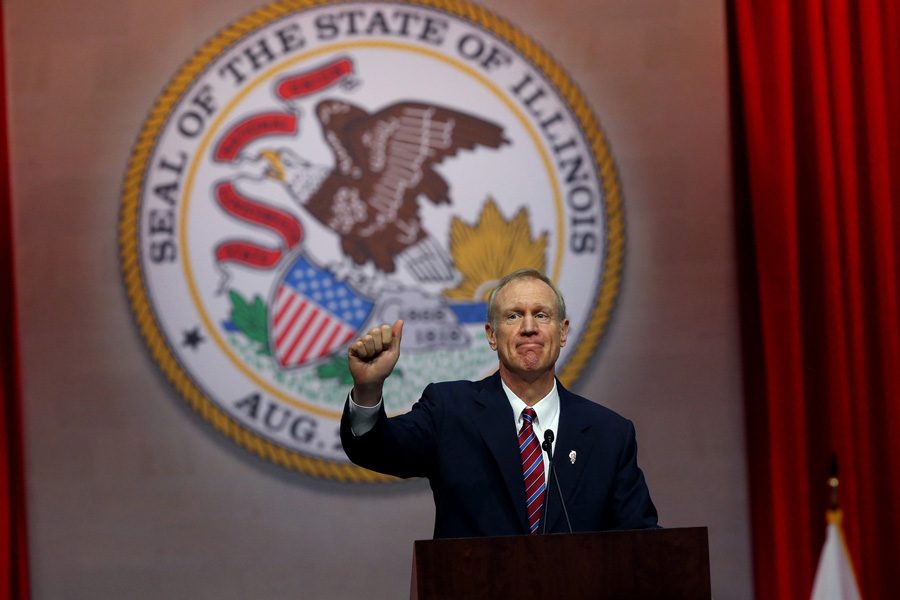Rauner vetoes attempt to move forward in union negotiations
Nancy Stone/Chicago Tribune/TNS
Gov. Bruce Rauner gives a thumbs up after giving his first speech as governor on Monday Jan. 12, 2015, at the Prairie Capital Convention Center in Springfield. The governor vetoed a union negotiations bill Monday.
May 16, 2016
Gov. Bruce Rauner vetoed a bill Monday that would have sent currently-stalled union negotiations to arbitration, saying the action would have robbed taxpayers of their voice in the process.
The state General Assembly passed a similar bill that Rauner vetoed last fall. Both the current and earlier bill aimed to address the upcoming expiration of current contracts between the state and the American Federation of State, County and Municipal Employees Council 31, the Illinois branch of a national public workers union.
In January, Rauner asked the Illinois Public Labor Relations Board to decide if the negotiations had reached a level of impasse that would allow the governor to stop talks and enact his own contract terms. Although the decision is predicted to come out in July, the bill would have allowed both Rauner and AFSCME to refer the negotiations to an independent arbitrator, whereas the board’s members were appointed by the governor.
“Governor Rauner doesn’t like (the bill) because it would require him to be moderate and seek compromise,” AFSCME Council 31 executive director Roberta Lynch said in a news release. “Given that power, the governor could impose his demands and leave state employees no choice but to strike. That’s exactly what Rauner as a candidate vowed to do.”
City manager Wally Bobkiewicz told the Daily that although non-police and non-firefighter public employees are members of AFSCME Council 31, this bill would only affect state-level employees and negotiations.
Despite criticisms of bias and inability to cooperate, Rauner defended his action to veto the bill as a defense against the union’s “unreasonable demands,” which he said the state could not afford.
“Taxpayers, through their elected officials, have an important, longstanding role in public labor negotiations,” Rauner said in a statement. “My action today defends taxpayers who are being denied their voice at the bargaining table.”
Email: [email protected]
Twitter: @robinlopsahl












